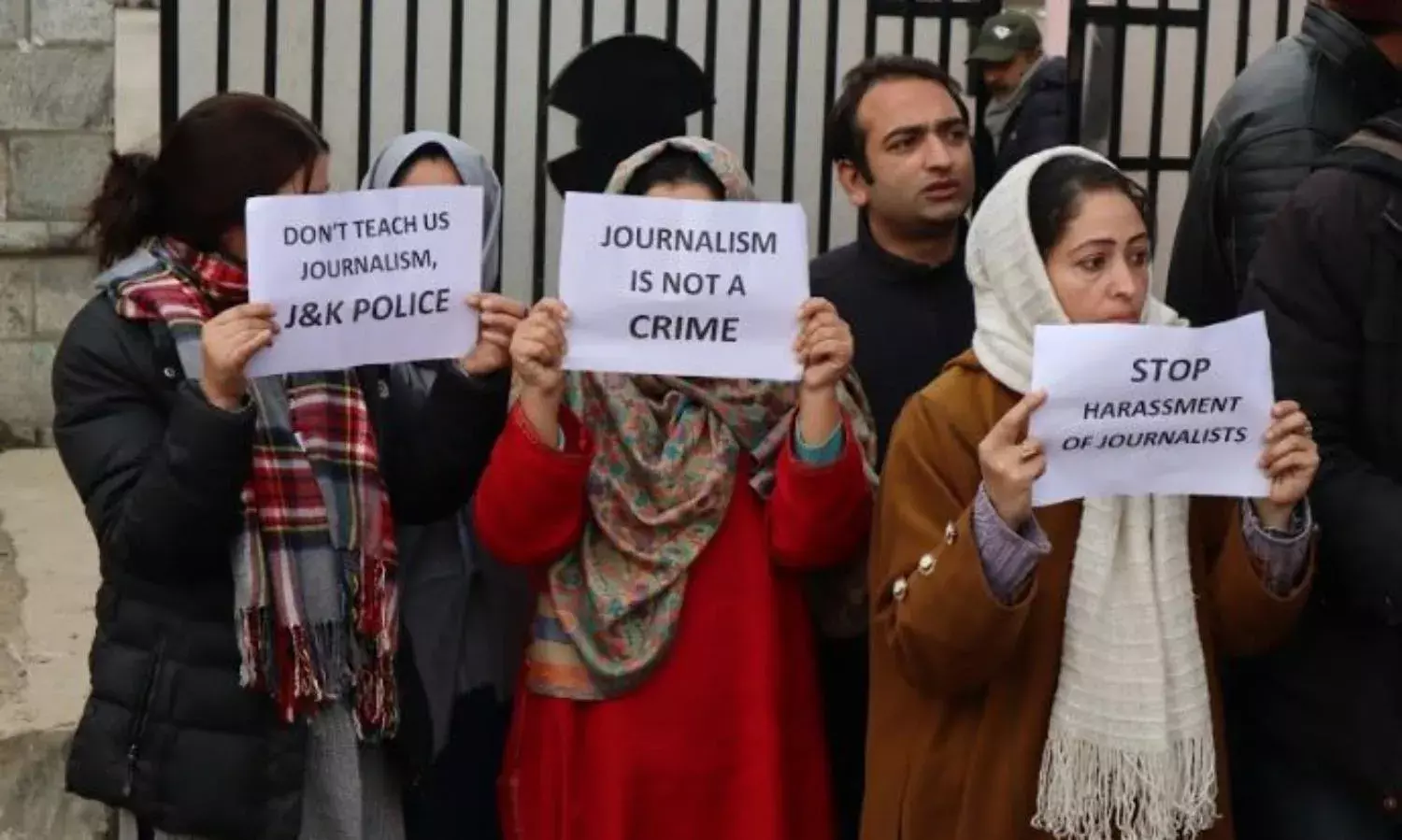Kashmir Journalist Says Police Jailed Him for 22 Days, Harassed His Family
'We have received a complaint'

It was on April 15 that 22-year-old Gowhar Wani was called in by police at Vigam in the Handwara district of Jammu Kashmir, and 22 days later that he was able to go back home.
Wani, an independent journalist from Handwara, says he was arrested in an unrelated case after which police jailed both him and his father.
“On April 15 my dad came home and asked me not to go out for photography. He told me that the SHO spoke to him in a bad manner and had warned me to not use my camera or else they would arrest me,” he related over the phone.
So, that very day Wani took to Twitter and posted about the incident, after which the police showed up at his home. “I posted the SHO’s statements on my Twitter account: that evening a man in civil [clothes] came to my office and abused me. He told me the SHO was calling me to the station. I managed to free myself but they took away my dad and arrested him,” said Wani.
He says his father was under arrest for ten days.
On April 16, Vilgam police called in Wani for questioning over an FIR. “I get a call saying there is an FIR against my name and I have to report. When I went to the police station the DSP told me to not indulge in unlawful activities, saying I was too young.”
Perusing the FIR he found he had been named in an incident that happened seven kilometres from his house. “There was a fight between some people and the police and they have named me. I had just gone to cover some incidents,” said Wani.
Confined in jail for 22 days until he was granted bail on May 6, the young journalist said the police refused even to recognise him as a journalist, and they beat him up.
According to Vilgam Station House Officer Sulaman Khan there are two FIRs in Wani’s name, “which is why we arrested him. One FIR registered says that he was in a fight, another is for spreading fake information.” Khan added that the journalist was not arrested “without any reason”.
He said while the court has granted Wani bail, the case will proceed. “We did our work according to the complaint we received. Rest the court will decide,” Khan told The Citizen.
Wani meanwhile says the police are targeting him. “It is very disappointing that a journalist in Kashmir is going through such an assault,” he said.
On April 20, Srinagar-based photojournalist Masrat Zahra was booked by J&K police under the Unlawful Activities Prevention Act, a harsh anti-terror law for allegedly glorifying “anti-national activities” on social media.
On April 21, J&K police called in Peerzada Ashiq, a journalist with The Hindu, for questioning over a story after an FIR was registered in his name. The same day a UAPA case was also filed against author and journalist Gowhar Geelani.
All this was happening amidst the pandemic, with the whole country locked down.
Sanna Irshad Mattoo a Kashmir-based journalist called this an “intimidation technique. These are attempts to block information about ground realities.”
“This is not the first time things are happening in Kashmir against journalists, but since August 5 things have changed drastically, and they have tightened their grip, to send a clear warning signal that they can do anything,” said Mattoo.
"There are threats, investigations in Kashmir, journalists continue to be jailed, harassed, beaten, summoned" she said, “and it is very difficult and challenging for us to work – but all this won’t silence us from doing our job.”
It is almost every day that journalists are in some way or the other pursued by police for their stories and in some cases forced to reveal their sources. This leaves many harassed and mentally tormented.
Muzamil Mattoo, an independent journalist based in Kashmir said that work has long been difficult for journalists here. “In Kashmir, it is totally different. You always have a threat to your life, mostly from the side of forces and authorities. You can get caught up in any case which the authorities consider ‘anti-national’ or against the sovereignty of the nation,” he said.
“One of our colleagues Aasif Sultan was arrested in 2018 forcing him to reveal his source for a story he did on Hizbul Commander Burhan Wani, and he is still in jail,” he said.
“They are trying to suppress the journalists just to stop the few remaining clear voices coming out of the Valley. Leave aside sharing our views, we have to think twice even before posting or writing about any current happening or the news,” said Mattoo, who has himself been targeted for his stories.
He said that calling in journalists to police stations, arrests, even beatings and shootings are not rare for journalists in Kashmir.
Cover Photo: BASIT ZARGAR/The Citizen



